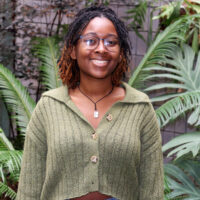
The effect long non-coding RNA expression on Vitamin E levels in Maize
Tocochromanols are a group of antioxidants synthesized in plant tissues and have varying levels of vitamin E activity, but tocochromanols with the highest vitamin E activity tend to occur at low levels in maize grain. In efforts to increase tocochromanol abundance in maize grain, Transcriptome-Wide Association Studies (TWAS) have been used to resolve quantitative trait loci (QTL) associated with grain tocochromanol concentrations to the gene level. While the causal loci underlying most of the large-effect QTL have been identified, relatively smaller effect QTL remain unresolved. Our past efforts have not explored the potential role of long non-coding RNAs (lncRNA), which are transcripts longer than 200 bp that do not encode a protein, in the genetic control of natural variation for tocochromanols in maize grain. Therefore, we hypothesize that lncRNAs could account for a portion of the unexplained genetic variation. We tested this hypothesis by conducting a new TWAS analysis in a maize association panel scored for lncRNA expression and grain tocochromanol levels. Nearly 20% of the identified lncRNAs were expressed in more than 10% of the individuals in the panel and were retained for the TWAS analysis. Of these, we found thirteen putative lncRNAs to be significantly associated with tocochromanols and of which four coincided with unresolved grain tocochromanol QTL identified in the maize nested association mapping panel. Our results highlight that including lncRNAs may be useful in resolving vitamin E-associated QTL in maize grain.
My 10 weeks working with BTI and completing this REU has been a truly unforgettable experience as I figure out what I want to do in my career. I’ve learned several new coding languages I didn’t think I would learn and what life in academia can look like outside of doing lab work. Through my project, I’ve been able to improve my problem solving skills and the way I think about mistakes when it comes to conducting research. Outside of the lab, the seminar series and opportunity to chat with people throughout Cornell has given me a broader perspective on the fields I can go into in the future.
